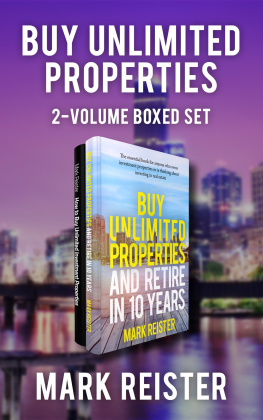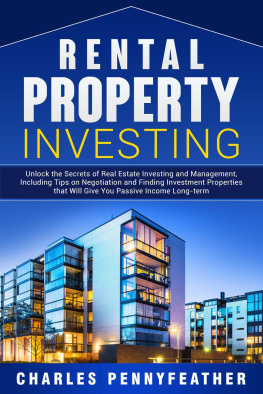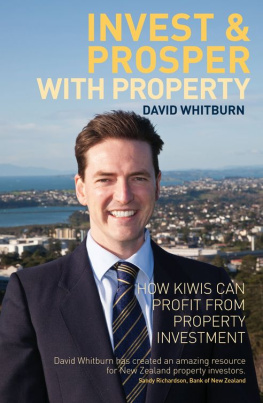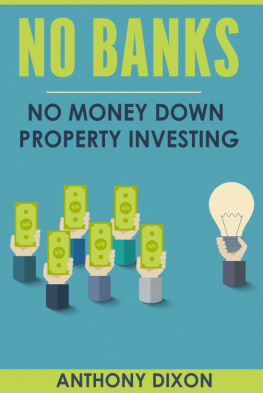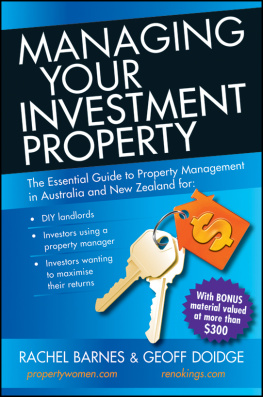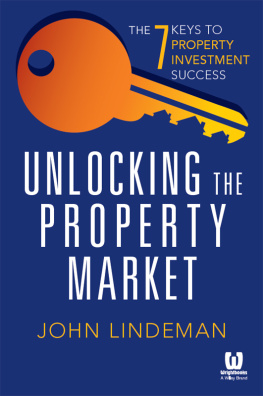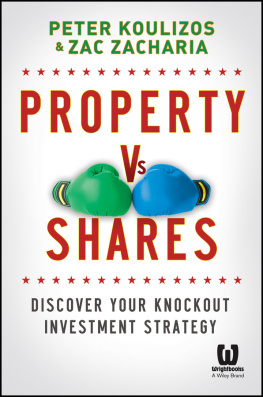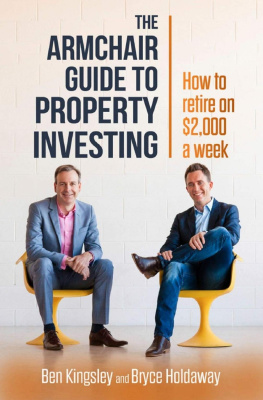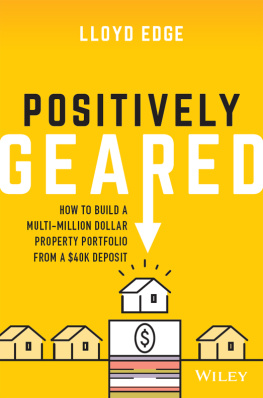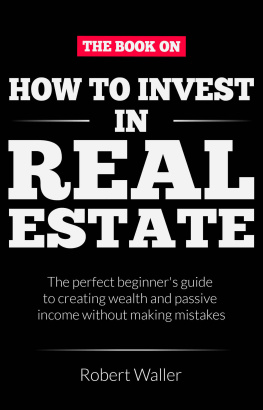1. I have used the masculine pronoun throughout the book. This may not be as politically correct as using he/she or they but it does make the book easier to read.
2. Figures and values given for specific properties have been altered to prevent their identification.
I bought my first investment property in 1975. I did just about everything wrong: I bought a section which, of course, had no income; I bought in a poor area; I had no plan for how the purchase would work nor any plan for how the investment fitted in to the rest of my finances; I knew little about property investment and even less about financing; I knew nothing about tax. All in all, a recipe for disaster.
And yet, 18 months later, I sold the section for 50 per cent more than what I had paid for it.
It is tempting to say something like those were the days. And they were the days! Days when inflation took care of your mistakes even really silly ones. The bigger fool theory was alive and well if you did something that was foolish, there was always a bigger fool just around the corner who would take your mistake off your hands, frequently leaving you with a profit.
The years 2002 and 2003 have seen big booms in the value of property in many of our markets. These years have been very good for anyone who was in the market but very bad for someone who did not yet have any investment property and who wanted to buy. In all boom times people come out offering all sorts of products and services, which have the effect of trying to persuade people to buy, buy, buy. Seminars, courses, books, magazines, etc are always with us but there are very many more of them in boom times and the tone becomes much more upbeat.
The overall climate during boom times is such that it is very difficult for the inexperienced investor to stay on the sidelines, keeping his money in his pocket. The inexperienced investor badly wants to be part of the game and is not fussy enough about what he buys. This does not matter too much while times remain good the inexperienced investor may have bought badly but the effect is little different from my experience with the rubbish I bought in 1975. In good times, the market is very forgiving of mistakes, leading even the inexperienced investor to feel invulnerable.
However, when the blowtorch of a property slump appears, the markets are no longer forgiving and those who have bought badly are the worst affected. In particular, those who have bought property on very low yields (i.e. a low amount of rental compared to the value of the property) with high levels of borrowings will find things very hard. Such people have to reach into their own pockets each month, using their salary or other income to meet the gap between the rent they receive and the interest they must pay. This is called negative gearing, which works well while property values are rising strongly and the amount of capital gain makes the use of cash from salary seem well justified, but can be uncomfortable in adverse conditions.
My experience is that when there is a property slump, with no prospect of capital gains for some years to come, people get very tired of using their hard-earned cash to prop up their investment property. New investors in particular, those who have never before seen a slump and only know the property good times, get rattled by all the negative comment on property, which becomes more and more strident the worse the market gets. It is hard to stand up against all this negative comment (just as it is hard to stand up against the call to buy when markets are booming) and many people lose both their patience and their nerve and end up selling into the slump, almost always at a loss.
All this means that most people end up doing exactly the opposite of what they should be doing. They should be buying in gloom and selling in boom, but in fact they do little else but listen to and act on the noise of the markets. Buying at the bottom of a market may not be necessary if you hold on to your investments right through a slump so that you are well positioned to enjoy the next boom. However, it is a disaster if you lose your nerve or your patience and sell into the slump.
Property is necessarily a long-term investment. This is partly because the exit and entry fees are high, but more particularly because property markets tend to move slowly within a long-term cycle.
Property in New Zealand has tended to work to a cycle from the top of one boom to the top of the next of around six to nine years. Typically there are a couple of very good years (weve just had them) followed by a slump and then several years where values barely change at all.
We have just had a boom, and it is likely that we are about to have a slump. It is impossible to say how severe that slump will be, but what is certain is that it will be a better time to buy than during the boom that we have just had. This slump, when it comes, will see the markets with a lot more and better property for sale. Most importantly, property will again start to yield good income compared to the price that you have to pay. The slump may be feared by many people, but the smart investor will welcome it for the opportunities it presents. Money is made in property according to what and how well you buy, and it is a slump that will let you buy well.
To be successful in property these days you have to use your brain. You must buy, manage and sell property on the basis of analysis rather than instinct or sentiment. The secret is to think through a strategy to identify the best properties so that you buy something that will perform both in good times and in bad.
Since the first edition of this book in 1996 I have presented numerous seminars and talks and met thousands of property investors, and as well have provided advice on wealth creation to many individuals. The stories these people have told me have confirmed for me the basic themes of this book. These themes are:
Buy for yield first. This is the most critical part of investing in todays markets. The investment must stack up well purely in terms of the cash flow that you can take from it by way of rent and not be reliant or dependent upon capital growth. That is not to say that growth in rents and in capital value are not important of course they are! However, these are secondary benefits. Your investment must perform and be valid solely on the basis of its rental income, with any growth being seen almost as a bonus.
Houses make lousy investments. Houses tend to be bought and sold on very low yields and are therefore reliant on capital growth to make them a worthwhile investment. Purpose-built flats tend to be much better as they usually sell on higher yields (and often require less maintenance). However, I still favour industrial property (warehouses and factories) as the property class that offers the best return, the most security, least management and maintenance, and which has the lowest obsolescence factor. It may take a bit of time to learn about industrial property because it is not as familiar to most of us as flats and houses, but it is worth spending that time.




